
The conventional use of the term ‘Rebel’ in societal settings conjures up images of a disenchanted/disenfranchised/disillusioned person who is driven to seeking ‘corrective measures’ for all the injustices done to him/her. This can range from an innocuous public voicing of a different viewpoint in front of the influential/powerful quarters to violent confrontation against any opposition/wrongdoers as a harsh form of retribution. However, within the professional realm, such dissension is generally driven by the prevalence of frustration/anxiety/premonition among professionals who are unable to ‘tag along’ with the ‘status quo’ promoted/preferred/preserved by the organizational leadership. The following table provides further insights into the respective context:
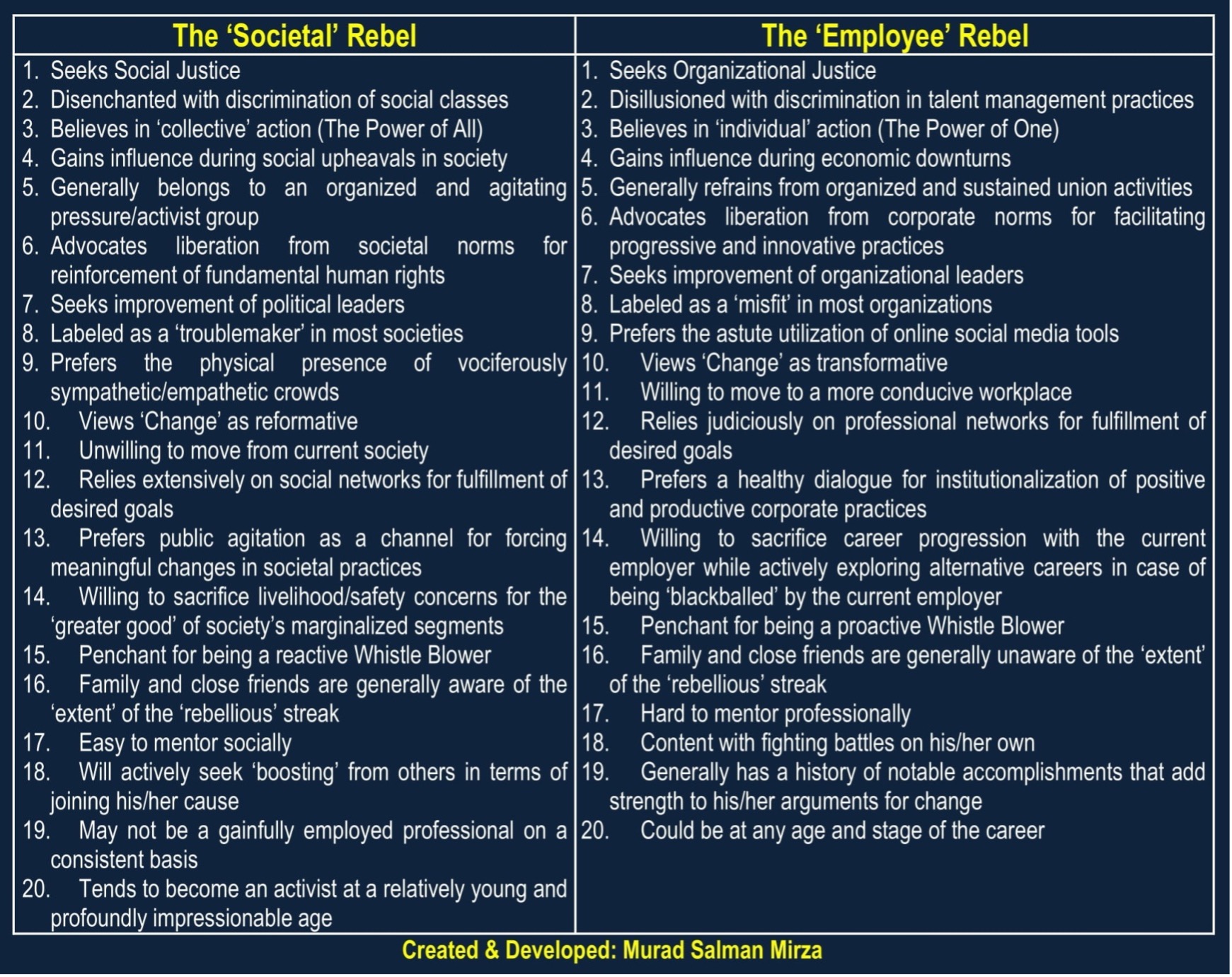
Gone are the days when budding professionals depended upon the paternalistic instincts of their employers to provide them with a viable career path.The capable professional of today is more informed, incisively skilled, and comes with a baggage of knowledge that enables leveraged negotiating targeted to achieve maximum gains within a mutually agreed frame of reference. Consequently, organizations are being pushed to increase the quality of ‘Employee Experience’ in addition to the ‘sweetening the conventional pie’ comprising of compensation and benefits to attract/retain the desired talent. The new arrangement taking root is one of ‘Employee Gratification’, where attractive ‘Total Rewards’ packages are customized to serve as ‘Golden Handcuffs’ on the desired talent as long as the organization sees/perceives a healthy ROI (Return-On-Investment) in terms of retaining them as part of its workforce. This can be visualized from the following chart:
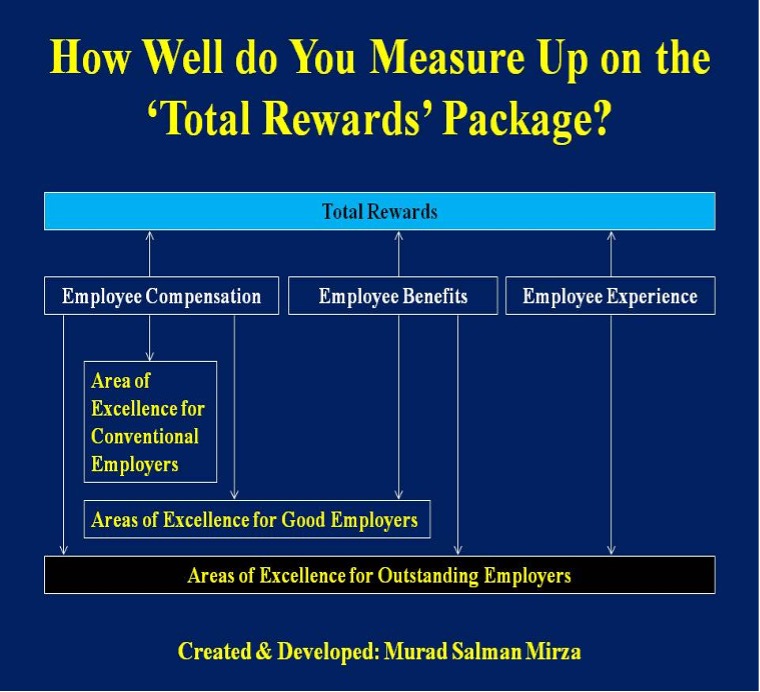
Such propensity for greater leverage in the Employment Relationship has been boosted by the phenomenon of the ‘Great Resignation’ that is giving additional ‘Food for Thought’ to the leadership within various corporate entities. The COVID-19 Pandemic acted as a ‘wake-up call’ for a multitude of aggrieved employees as it triggered the reassessment of their priorities in terms of weighing the precariousness of their professional futures against the sacrifices being made in terms of compromising on the ‘quality’ of the time given to their loved ones/true passions. Results from a survey by Gartner encapsulate the evolving dynamics:
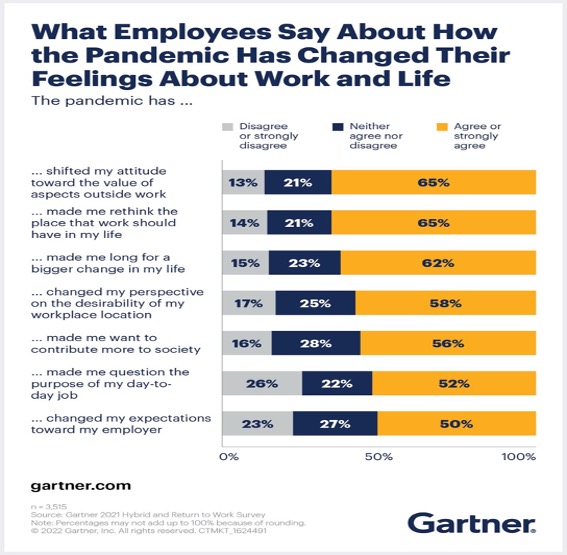
Three of the key factors fomenting the ‘Rebellion’ are as follows:
High variance of career prospects within the multigenerational workforces
A large number of measures taken by the organizational leaders to ‘buffer’ the consequences of the economic downturn during the worst ravages of the COVID-19 Pandemic impacted the various generations within the workforces differently. The senior employees, usually the most expensive in terms of compensation packages, generally suffered the most in the respective context. This resulted in not only increasing discontent/anxiety among the relevant segments of the workforce, but also, enhanced the ‘Rebellious’ trait within the younger members, who are generally the beneficiaries of mentoring/grooming/facilitation from older generations, since they realized the futility of a long-term commitment to an organization that does not ‘care’ about its senior employees. Such a realization was in addition to the excruciating work practices already being borne by the new/junior employees within many organizations that encouraged/incentivized working long hours without reasonable breaks to offset any health concerns. Consequently, waves of resignations have been sweeping across such businesses at the cost of tarnishing the reputation of their Talent Management practices.
Raging discontent with the blundering and indifferent corporate leaders
Corporate leaders are often proclaimed as ‘role models’ and expected to be the ‘true’ embodiment of the organization’s core values as an assuring/reassuring sign of their unflinching support for the permeation of such ‘goodness’ throughout the organization. However, there has been a steady stream of management failures by the upper echelons of the corporate hierarchy that have plagued many ‘seemingly’ progressive organizations, e.g., Boeing, Facebook, Tesla, SpaceX, Blue Origin, etc. This has resulted in earning universal scorn from the industry watchers and the wider citizenry, e.g., Amazon ridiculed for trying to motivate Easter Sunday workers with a raffle to win water and a bag of chips, while also strengthening the calls for unionization to ‘collectively bargain’ for better working conditions. The severity of such ‘transgressions’ was even more pronounced during the trying times of the COVID-19 Pandemic, during which, many CEOs pocketed huge compensations while their employees at lower levels had difficulty in managing home budgets. Consequently, the phenomenon of ‘quiet quitting’ has been increasing embraced by the embattled employees as a form of passive resistance by lowering their engagement levels with ‘unaccommodating’ employers.
A healthy job market with promising lateral, vertical or alternative career opportunities
The audaciousness of employees has been further elevated by the plethora of promising opportunities that are available in the market, with economies across the world eagerly seeking to rebound from the worst ravages of the COVID-19 Pandemic as observed within the corporate landscape of the USA. This is exacerbating the predicament of organizations pertaining to the hiring and retention of ‘desired’ talent. A recent survey by McKinsey attests to the respective aspect as reflected in the following statistics:
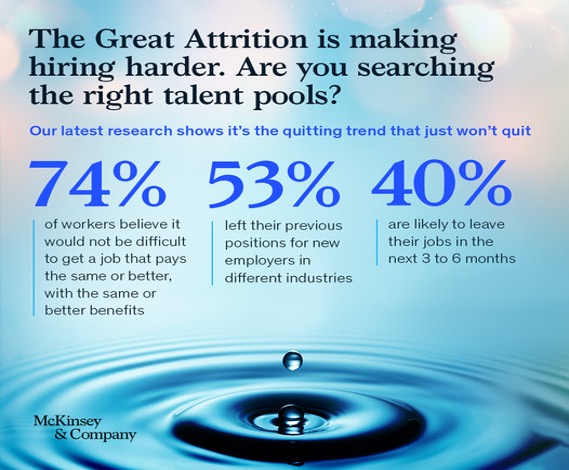
Consequently, the numbers of ‘Rebel’ Employees are steadily rising, and they are exploring a wide bandwidth of options to have their voices heard at the upper echelons of the corporate hierarchy for the sake of judicious work practices, including the astute utilization of the various social media platforms. On a more conventional note, this has led to a renewed interest in unionization despite strong opposition and desperate ‘union busting’ tactics by some big companies, e.g., Starbucks and Chipotle.
It is important to remember that the ‘Rebellious’ disposition is not evenly divided across the multigenerational workforces with the younger generations, especially Gen Z, being at the forefront of asserting their ‘rights’ to judicious treatment in terms of conducive work practices. This can be observed from the results of a recent survey by Gallup:
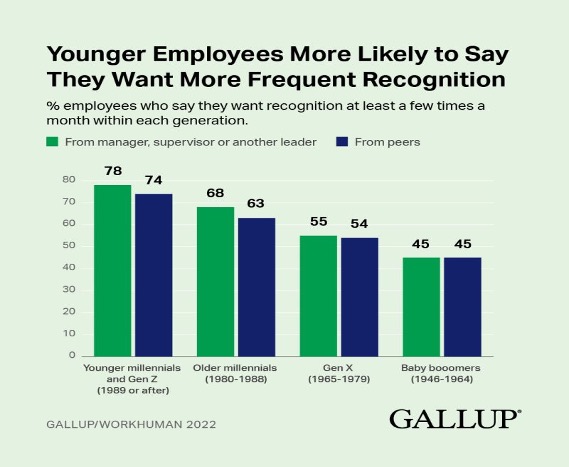
Consequently, organizations have to astutely and timely decipher the signals being sent from their multigenerational workforces and take appropriate constructive actions before it’s too late to remedy significant attrition of talent, slowing trends of productivity, sagging levels of morale and motivation, and depleting reserves of innovative capabilities. Additionally, the path to sustainable success, formidable competitiveness, and continued relevance in a rapidly evolving Digital World is paved by ‘Productive Rebels’, rather than, ‘Insular Conformists’. Therefore, organizations need to make sure that their Talent Management practices have the ‘Breathing Space’ for ‘Free Thinkers’ and ‘Trendsetters’ who are imbued with the change imperative and enrich the ‘Organizational Aptitude’ in unconventional ways that boost the ‘Core Value of Innovation’ effectively. Will you engage the ‘Employee Rebels’ constructively?




